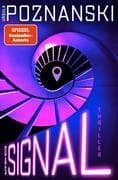If ever a book could be called timely, this is it. Sleep disorders medicine has made rapid advances in recent years. The field has attained growing respectability, with a textbook recently published, a congressionally man dated National Commission on Sleep Disorders Research, and a growing public awareness of the importance of sleep disorders. However, this rapid growth has made the discrepancy among certain components of the field all the more obvious. Thus, we find that patients who complain of insom nia are almost never in the majority of those seen in sleep disorders centers, in spite of the well-known fact that the prevalence of such individ uals in our society is by far the largest. Current articles on insomnia abound, but they tend to be facile recitations of diagnosis and impractical global recommendations for treat ment, without providing the essential details. Indeed, the clinical profes sions really do not know what to do about insomnia. This is reflected in a number of observations I have made in the recent past. For example, the majority of individuals who complain of insomnia take alcohol, aspirin, over-the-counter medications, hot baths, and a host of other nostrums, but rarely seek a physician. In the unlikely event that a physician is consulted, he is likely to prescribe a sleep medication but without any particular consistency, or any clear instructions on its use.
Inhaltsverzeichnis
One Introduction. - One Specific Behavioral Techniques. - Two Stimulus Control Instructions. - Three Stimulus Control in a Group Setting. - Four Sleep Restriction Therapy. - Five Sleep Hygiene, Relaxation Therapy, and Cognitive Interventions. - Two Psychotherapeutic Techniques and Pharmacotherapy. - Six Insomnia: Psychotherapy or Not? . - Seven Short-Term Psychotherapy for Chronic Insomnia. - Eight Pharmacotherapy of Insomnia. - Three Comprehensive and Integrated Approaches. - Nine Selecting a Treatment Strategy. - Ten Breaking the Vicious Circle of Insomnia: A Treatment Model. - Eleven Sleep Behavior Management. - Four Disorders of the Sleep Wake Schedule. - Twelve Assessment and Treatment of Delayed Sleep Phase Syndrome. - Thirteen Early Morning Awakening Insomnia: Bright-Light Treatment. - Five Specific Populations. - Fourteen Insomnia in the Chronically Ill. - Fifteen Insomnia in the Older Adult.












